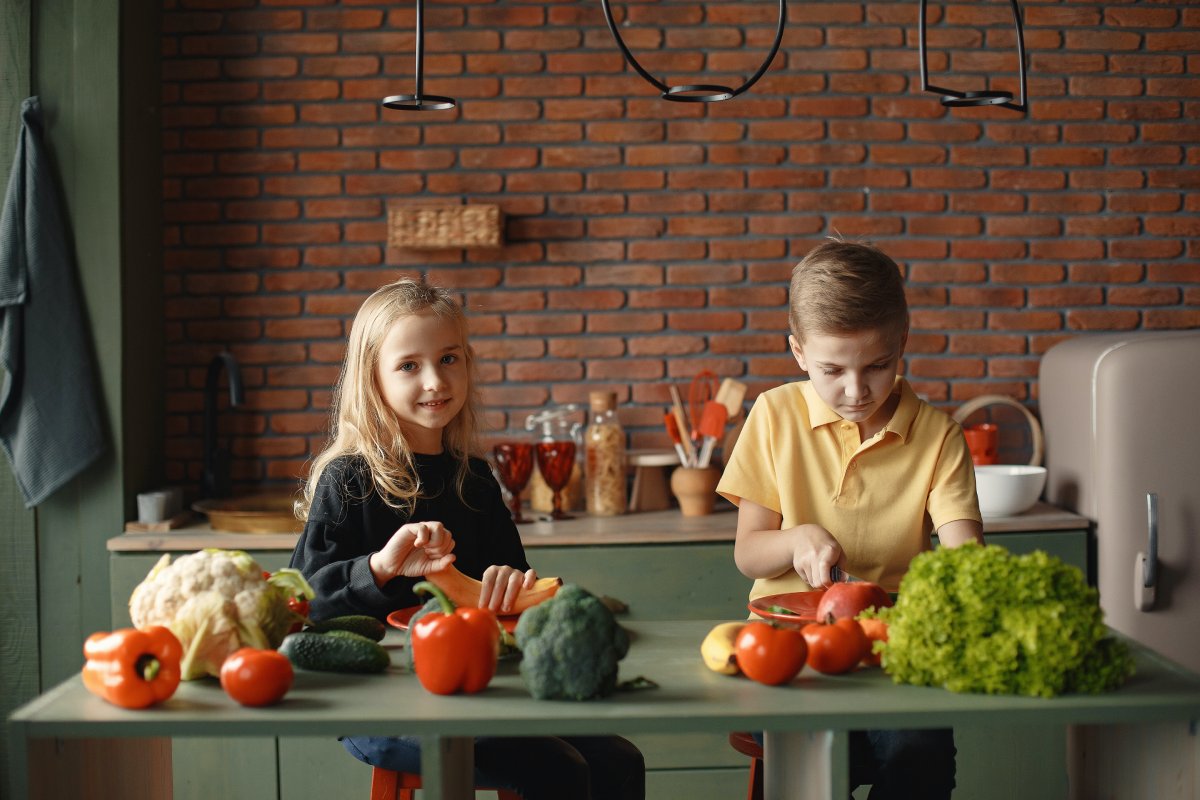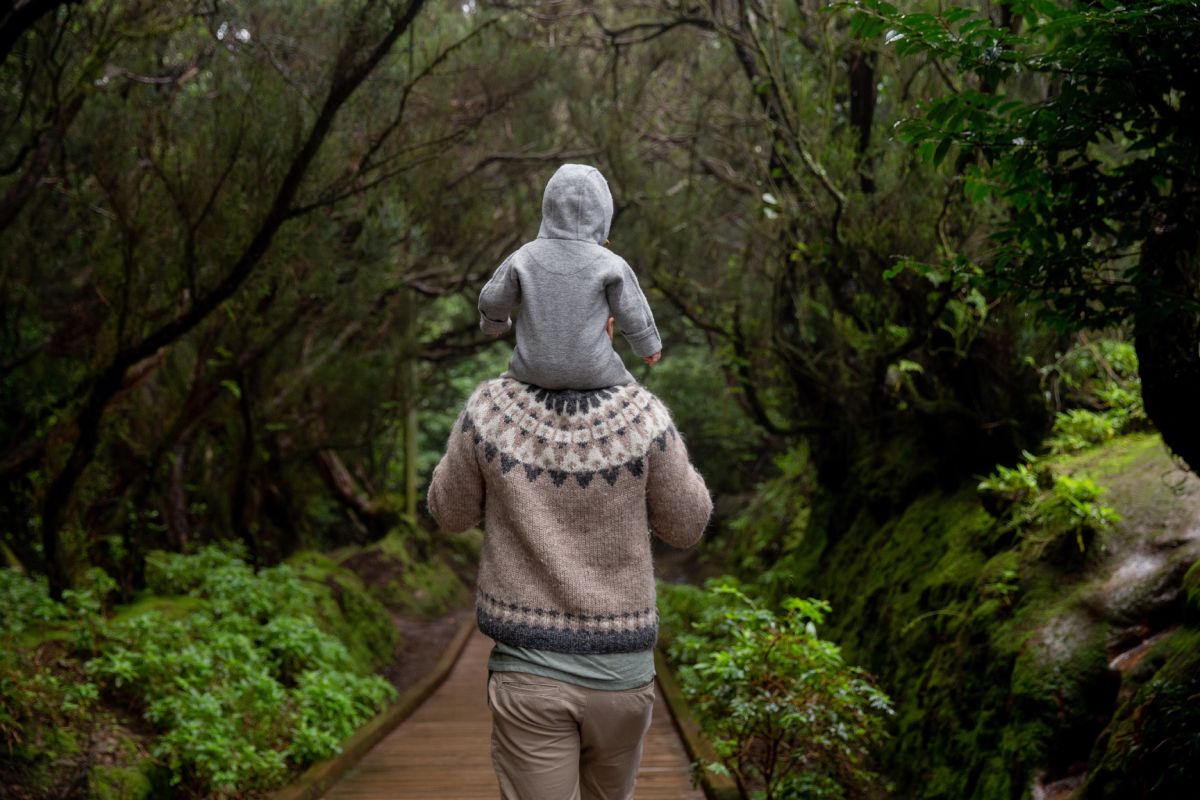Introduction
In today’s world, raising eco-conscious children is more important than ever. As parents, we have a responsibility to instill sustainable values and practices in our children from an early age. By teaching them about environmental issues and encouraging eco-friendly behaviors, we can raise a generation of individuals who are aware of their impact on the planet and actively contribute to its preservation. This section explores the importance of raising eco-conscious children and highlights the benefits of instilling sustainable values and practices from the start.
Importance of Raising Eco-Conscious Children
Raising eco-conscious children is vital for the future well-being of our planet. As we face pressing environmental challenges such as climate change, deforestation, and pollution, it is essential that the next generation understands the importance of sustainability and takes action to protect the environment. By teaching our children to be eco-conscious, we empower them to become responsible stewards of the Earth, equipped with the knowledge and motivation to make a positive impact.
Benefits of Instilling Sustainable Values and Practices
Instilling sustainable values and practices in children from an early age offers numerous benefits. First and foremost, it helps children develop a deep sense of empathy and connection with the natural world. By teaching them to appreciate and respect the environment, we cultivate a love for nature that can inspire lifelong environmental stewardship.
Additionally, raising eco-conscious children promotes critical thinking and problem-solving skills. It encourages them to question unsustainable practices and explore innovative solutions to environmental issues. By fostering a mindset of sustainability, we equip children with the ability to think creatively and find alternative ways of living that are in harmony with the planet.
Furthermore, teaching children about sustainable living instills a sense of responsibility and accountability. They learn that their choices and actions have consequences, not just for themselves but for the world around them. By understanding the impact of their decisions, children become more mindful consumers and develop a greater appreciation for the value of resources.
In conclusion, raising eco-conscious children is crucial for the future of our planet. By instilling sustainable values and practices from an early age, we empower children to become active participants in creating a more sustainable world. The benefits extend beyond environmental protection, fostering empathy, critical thinking, and a sense of responsibility. As parents, we have the opportunity to shape the next generation and inspire them to become environmentally conscious individuals who will contribute to a brighter, greener future.
Teaching Environmental Awareness
Teaching environmental awareness to children is a fundamental step in raising eco-conscious individuals. By engaging them in age-appropriate discussions, introducing key concepts, and fostering a connection with the natural world, we can inspire a sense of wonder and responsibility towards the environment. This section explores effective strategies for teaching environmental awareness to children.

Engaging Children in Age-Appropriate Discussions
Engaging children in age-appropriate discussions about the environment is a powerful way to raise their awareness. Start by encouraging their curiosity and asking open-ended questions to gauge their understanding. Tailor the discussions to their level of comprehension, making sure the information is accessible and engaging.
For younger children, you can discuss topics like recycling, water conservation, and the importance of taking care of plants and animals. Use simple language and interactive activities to illustrate the concepts. As children grow older, you can delve deeper into environmental issues such as pollution, deforestation, and climate change. Encourage critical thinking by asking them how these issues affect their daily lives and what actions they can take to make a positive impact.
Introducing Concepts like Conservation, Biodiversity, and Climate Change
Introducing key concepts is essential in helping children understand the importance of environmental conservation. Start by teaching them about conservation and why it is important to preserve natural resources. Explain the concept of biodiversity and how every living organism contributes to the balance of ecosystems. As they grasp these concepts, gradually introduce the idea of climate change and its impact on the planet.
Use age-appropriate resources such as books, documentaries, and interactive websites to illustrate these concepts. Visual aids, storytelling, and hands-on activities can make learning more engaging and memorable for children. Encourage them to ask questions, express their thoughts and opinions, and explore different perspectives. By providing them with a solid foundation of knowledge, you equip them with the tools to make informed decisions and take action.
Exploring Nature Together and Fostering a Connection with the Natural World
One of the most effective ways to teach environmental awareness is by fostering a connection with the natural world. Spend time outdoors with your children, exploring parks, gardens, and natural landscapes. Encourage them to observe the plants, animals, and ecosystems they encounter. Point out the interconnectedness of all living things and emphasize the beauty and wonder of nature.
Engage in nature-based activities such as gardening, hiking, or camping. Teach children about the importance of native plants, the role of pollinators, and the benefits of composting. Allow them to get their hands dirty, plant seeds, and witness the growth process. By involving them in these activities, you not only teach them practical skills but also cultivate a deep appreciation and respect for the environment.
In conclusion, teaching environmental awareness to children is a powerful way to raise eco-conscious individuals. By engaging them in age-appropriate discussions, introducing key concepts, and fostering a connection with the natural world, we empower them to become advocates for the environment. Through these efforts, we can inspire a generation that understands the importance of sustainable living and is motivated to protect and preserve our planet for the future.
Practicing Waste Reduction
Waste reduction is a crucial aspect of sustainable parenting, as it instills responsible habits in children and teaches them the importance of reducing their environmental footprint. By teaching kids about the principles of reducing, reusing, and recycling, minimizing single-use items, and implementing composting and food waste reduction practices, we can help them become active participants in creating a more sustainable future.

Teaching Kids about the Importance of Reducing, Reusing, and Recycling
Teaching children about the importance of reducing, reusing, and recycling empowers them to make conscious choices that minimize waste. Explain to them that by reducing their consumption and using resources wisely, they can help protect the environment. Encourage them to consider whether they truly need a new item before making a purchase, and discuss the impact of their choices on the planet.
Show kids creative ways to reuse items instead of discarding them. Teach them how to repurpose materials for crafts or donate toys and clothes they no longer use. By fostering a mindset of reuse, you can help them develop resourcefulness and an appreciation for the value of objects.
Introduce recycling as a way to divert waste from landfills. Teach them which materials can be recycled and how to properly sort recyclables. Create a recycling station at home and involve them in the process of sorting and disposing of items. Make it a fun and interactive activity, helping them understand that recycling is an important step towards conserving resources.
Minimizing Single-Use Items and Opting for Sustainable Alternatives
Minimizing single-use items is an effective way to reduce waste and teach children the importance of sustainability. Start by replacing disposable products with reusable alternatives. Provide your child with a reusable water bottle, lunchbox, and cloth napkins to use instead of single-use options. Explain to them the impact of single-use plastics on the environment and why it’s important to choose sustainable alternatives.
Encourage your child to bring their own bags when shopping and explain the environmental consequences of plastic bags. Show them how to make eco-friendly choices when it comes to packaging, such as buying products with minimal or recyclable packaging.
Implementing Composting and Encouraging Food Waste Reduction
Implementing composting at home is a practical way to reduce food waste and teach children about the natural cycle of decomposition. Involve your child in the composting process, explaining how food scraps and organic materials can be transformed into nutrient-rich soil for plants. Show them what items can be composted and how to maintain a compost bin or pile.
Encourage your child to participate in meal planning and grocery shopping, emphasizing the importance of buying only what is needed and using ingredients before they go bad. Teach them to appreciate food and avoid wasting it. Explore creative ways to use leftovers and involve them in cooking and meal preparation, teaching them to value every bite and minimize food waste.
By practicing waste reduction techniques, children develop a sense of responsibility towards the environment and understand their role in creating a sustainable future. Through these practices, we can raise eco-conscious children who embrace sustainable habits and actively contribute to a cleaner, greener planet.
Sustainable Food Choices
Sustainable food choices are not only beneficial for our health but also have a significant impact on the environment and animal welfare. By promoting healthy and sustainable eating habits, growing a garden or participating in community-supported agriculture, and explaining the impact of food choices, we can raise eco-conscious children who understand the importance of making mindful decisions when it comes to what they eat.

Promoting Healthy and Sustainable Eating Habits
Promoting healthy and sustainable eating habits is an essential aspect of sustainable parenting. Teach your child the importance of a balanced diet that includes plenty of fruits, vegetables, whole grains, and plant-based proteins. Explain how these foods provide essential nutrients while being environmentally friendly.
Encourage your child to make sustainable choices when it comes to food. Discuss the benefits of locally sourced and seasonal produce, as it reduces the carbon footprint associated with transportation. Visit farmers markets together and involve them in selecting fresh, locally grown ingredients.
Reduce the consumption of processed and packaged foods, which often have a higher environmental impact due to their production and packaging waste. Instead, opt for homemade meals using whole ingredients. Involve your child in meal preparation, teaching them valuable cooking skills and the benefits of homemade meals.
Growing a Garden or Participating in Community-Supported Agriculture
Growing a garden or participating in community-supported agriculture programs allows children to connect with nature, learn about food production, and develop a deeper appreciation for where their food comes from. If you have space, start a small garden at home and involve your child in every step of the process. From planting seeds to nurturing the plants and harvesting the produce, they will gain firsthand experience and a sense of accomplishment.
If space is limited, consider joining a community-supported agriculture (CSA) program or a local gardening initiative. CSA programs provide a direct connection between consumers and local farmers, allowing families to receive a share of the harvest while supporting sustainable agricultural practices. Visiting the farm or participating in volunteer activities can be an educational and enjoyable experience for children.
Explaining the Impact of Food Choices on the Environment and Animal Welfare
Take the time to explain to your child how food choices can have a significant impact on the environment and animal welfare. Discuss the benefits of reducing meat consumption and incorporating more plant-based meals into their diet. Explain the environmental consequences of large-scale animal agriculture, including deforestation, greenhouse gas emissions, and water pollution.
Encourage your child to choose organic and ethically sourced products, as these options support sustainable farming practices and animal welfare standards. Teach them about the importance of avoiding food waste and how it contributes to resource depletion and greenhouse gas emissions.
By promoting sustainable food choices, we empower our children to make conscious decisions that support their well-being and the health of the planet. They learn the importance of nourishing their bodies with nutritious foods while minimizing their ecological footprint.
Conscious Consumerism
Conscious consumerism is a key component of sustainable parenting. By encouraging mindful purchasing decisions, teaching children to value quality over quantity, and discussing the environmental impact of different products and packaging, we can raise eco-conscious children who understand the importance of responsible consumption.

Encouraging Mindful Purchasing Decisions and Avoiding Excessive Consumption
One of the first steps in practicing conscious consumerism is teaching children to make mindful purchasing decisions and avoid excessive consumption. Help them understand the difference between wants and needs and the potential consequences of impulsive buying. Encourage them to think critically about whether they truly need an item before making a purchase.
Involve your child in the shopping process, whether it’s for groceries or other goods. Teach them to read product labels and choose items that are eco-friendly, sustainably produced, and have minimal packaging. Explain the importance of supporting companies and brands that prioritize ethical and sustainable practices.
Teaching Kids to Value Quality Over Quantity and to Prioritize Secondhand Items
Another aspect of conscious consumerism is teaching children to value quality over quantity and to prioritize secondhand items whenever possible. Help them understand that investing in well-made products not only reduces waste but also saves money in the long run.
Encourage your child to explore secondhand options, such as thrift stores, consignment shops, or online marketplaces for clothes, toys, and other items. Teach them the value of giving pre-owned items a second life, reducing the demand for new production and minimizing environmental impact.
Discussing the Environmental Impact of Different Products and Packaging
Engage your child in conversations about the environmental impact of different products and packaging. Discuss the concept of sustainability, emphasizing the importance of choosing items that have a minimal ecological footprint.
Talk about the harmful effects of single-use plastics and encourage the use of reusable alternatives like cloth bags, water bottles, and food containers. Teach them about recycling and the importance of properly sorting waste to minimize pollution and promote resource conservation.
Additionally, discuss the concept of “reduce, reuse, and recycle” to instill a sense of responsibility towards the environment. Encourage creative repurposing of items, fostering their imagination and teaching them the value of giving new life to objects that might otherwise be discarded.
By practicing conscious consumerism, we can teach our children the importance of making thoughtful choices that align with their values and contribute to a more sustainable future.
Energy and Resource Conservation
Teaching children about energy and resource conservation is an essential part of raising eco-conscious children. By educating them about saving energy and water at home, encouraging the use of energy-efficient appliances and smart technology, and involving them in conservation activities, we can instill in them a sense of responsibility towards the environment.

Educating Children About Saving Energy and Water at Home
Start by educating your children about the importance of saving energy and water at home. Explain how conserving these resources helps protect the planet and ensure a sustainable future. Teach them simple yet impactful habits such as turning off lights when leaving a room, unplugging electronic devices when not in use, and closing taps tightly to avoid water wastage.
Engage them in discussions about the benefits of natural light, opening windows for ventilation instead of relying solely on air conditioning, and adjusting thermostats to conserve energy. By involving them in these conversations, they will develop an understanding of the direct link between their actions and the impact on the environment.
Encouraging the Use of Energy-Efficient Appliances and Smart Technology
Introduce your children to the concept of energy-efficient appliances and smart technology. Explain how these devices are designed to minimize energy consumption and reduce their carbon footprint. Show them examples such as energy-efficient light bulbs, appliances with high energy ratings, and smart thermostats that optimize energy usage.
Encourage them to be proactive in identifying and using energy-saving features in household appliances, such as setting energy-efficient modes on computers and reducing screen time. Additionally, explore smart home technology options together, explaining how these devices can help monitor and manage energy usage more effectively.
Involving Kids in Conservation Activities like Turning off Lights and Conserving Water
To further instill the value of energy and resource conservation, involve your children in practical activities around the house. Assign them responsibilities such as turning off lights when leaving a room, closing doors to maintain room temperatures, and reporting any water leaks or dripping taps. These small but meaningful actions create a sense of ownership and responsibility for resource conservation.
Engage them in water-saving practices such as taking shorter showers, turning off the tap while brushing their teeth, and using collected rainwater for watering plants. By involving them in these activities, they will develop a strong connection to the environment and understand the significance of their role in preserving it.
Outdoor Adventures and Nature Exploration
Spending time outdoors in nature is not only beneficial for physical and mental well-being but also plays a crucial role in raising eco-conscious children. By emphasizing the importance of outdoor exploration, planning family hikes, camping trips, and nature-based activities, and teaching respect for wildlife, ecosystems, and natural habitats, we can cultivate a deep appreciation for the environment in our children.

Emphasizing the Importance of Spending Time Outdoors in Nature
Make it a priority to emphasize the significance of spending time outdoors in nature. Explain to your children the countless benefits of being in nature, such as fresh air, vitamin D from sunlight, and the opportunity to observe and connect with the natural world. Encourage them to appreciate the beauty and wonders of nature by pointing out interesting plants, animals, and natural features during your outdoor adventures.
Planning Family Hikes, Camping Trips, and Nature-Based Activities
Plan regular family hikes, camping trips, and nature-based activities to immerse your children in the natural environment. Research local parks, nature reserves, or camping sites where you can explore together as a family. Involve your children in the planning process, allowing them to contribute ideas and preferences for outdoor adventures. This involvement fosters a sense of excitement and ownership, making them more engaged and appreciative of the experiences.
Incorporate nature-based activities into your outings, such as nature scavenger hunts, wildlife spotting, or building natural structures with fallen branches. These activities not only promote a deeper connection with nature but also provide opportunities for learning and discovery.
Teaching Respect for Wildlife, Ecosystems, and Natural Habitats
Teach your children the importance of respecting wildlife, ecosystems, and natural habitats. Emphasize the significance of preserving biodiversity and the delicate balance of ecosystems. Encourage them to observe animals from a distance, never disturbing or approaching them too closely. Teach them to appreciate the value of every living creature and the role they play in the ecosystem.
Instill in them a sense of responsibility for keeping natural habitats clean and litter-free. Encourage them to pick up litter they come across during their outdoor adventures and dispose of it properly. Teach them about the harmful effects of pollution on wildlife and the environment, fostering a sense of empathy and understanding.
By engaging in outdoor adventures and nature exploration, we can nurture a deep love and respect for the natural world in our children. Next, we will discuss “Community Involvement and Advocacy for Environmental Causes”!
Community and Social Responsibility
Teaching our children about community and social responsibility is an essential aspect of raising eco-conscious children. By engaging in environmental volunteering and community clean-up initiatives, teaching empathy and the importance of taking care of others and the planet, and encouraging involvement in local sustainability projects and initiatives, we can instill in our children a sense of responsibility and the power to make a positive impact on their surroundings.

Engaging in Environmental Volunteering and Community Clean-up Initiatives
Engage your children in environmental volunteering and community clean-up initiatives to demonstrate the importance of giving back to the community and taking care of the environment. Participate as a family in local clean-up events, where you can pick up litter in parks, beaches, or other public spaces. Involve your children in the process by providing them with gloves, bags, and tools to actively participate in the clean-up efforts.
Additionally, seek out opportunities to volunteer with environmental organizations or participate in tree planting events. These activities not only contribute to the betterment of the environment but also allow children to witness the collective efforts of individuals working towards a common goal.
Teaching Empathy and the Importance of Taking Care of Others and the Planet
Teaching empathy is crucial in nurturing eco-consciousness in children. Help them understand the interconnectedness between people, animals, and the planet. Encourage acts of kindness towards others, such as sharing resources, helping neighbors, or assisting local charities. By practicing empathy and compassion, children learn to value and respect others, including different cultures, perspectives, and the importance of equality.
Demonstrate the significance of taking care of the planet by incorporating sustainable practices into your daily lives. Involve your children in sorting recyclables, composting organic waste, and conserving resources like water and energy. Explain how these actions positively impact the environment and future generations, encouraging a sense of responsibility towards the planet.
Encouraging Involvement in Local Sustainability Projects and Initiatives
Encourage your children’s involvement in local sustainability projects and initiatives. Research and identify local organizations or initiatives focused on environmental conservation, renewable energy, or sustainable practices. Engage your children in conversations about these projects and their positive impacts on the community and the environment.
Encourage your children to participate actively in such initiatives by attending community meetings, joining youth-led sustainability groups, or even initiating their sustainability projects at school or in the neighborhood. By involving them in local sustainability efforts, children gain a sense of empowerment and realize that their actions can contribute to creating a more sustainable future.
By focusing on community and social responsibility, we can raise eco-conscious children who understand the importance of collective action and actively contribute to making a positive difference in the world.
Leading by Example
As parents, we have a powerful influence on our children’s behaviors and attitudes. By being a role model for sustainable practices and behaviors, demonstrating eco-conscious choices in our daily lives, and celebrating successes while creating a positive family culture around sustainability, we can effectively raise eco-conscious children who understand the importance of living in harmony with the environment.

Being a Role Model for Sustainable Practices and Behaviors
Children learn by observing and imitating their parents. By modeling sustainable practices and behaviors, we can inspire our children to follow suit. Incorporate environmentally friendly habits into your daily routine and involve your children in these activities. Show them how to properly sort and dispose of waste, conserve energy and water, and choose eco-friendly products.
Whether it’s using reusable water bottles, shopping with reusable bags, or composting kitchen scraps, your actions speak volumes. Explain the reasons behind your choices, emphasizing the positive impact they have on the environment. By consistently demonstrating sustainable practices, you instill a sense of responsibility and make eco-consciousness a natural part of your child’s life.
Demonstrating Eco-Conscious Choices in Daily Life
Integrate eco-conscious choices into various aspects of your daily life. Discuss the importance of reducing waste and opting for sustainable alternatives. Involve your children in meal planning and grocery shopping, highlighting the benefits of choosing locally sourced, organic foods with minimal packaging. Engage them in the process of selecting eco-friendly household products, such as cleaning supplies or personal care items.
Inviting your children to participate in these decisions cultivates their awareness of the environmental impact of their choices and empowers them to make more sustainable decisions themselves. By demonstrating eco-conscious choices, you instill a lifelong mindset of responsible consumption and care for the planet.
Celebrating Successes and Creating a Positive Family Culture around Sustainability
Celebrate the achievements and milestones of your family’s sustainable journey. Recognize and commend your children’s efforts in adopting eco-conscious behaviors. This positive reinforcement reinforces their commitment to sustainability and fosters a sense of pride in their contributions.
Create a family culture centered around sustainability by making it a fun and engaging process. Organize activities that reinforce eco-conscious values, such as planting trees together, starting a family vegetable garden, or exploring local parks and nature reserves. Engage in conversations about environmental issues, encouraging your children to share their thoughts and ideas.
By celebrating successes and creating a positive family culture around sustainability, you create a supportive environment that nurtures your children’s eco-consciousness and strengthens their commitment to sustainable living.
In conclusion, leading by example is a powerful way to raise eco-conscious children. By being role models, demonstrating eco-conscious choices, and celebrating successes, we can instill in our children a deep-rooted understanding of the importance of sustainable practices. Through our collective efforts, we can shape a future generation that is committed to creating a healthier and more sustainable planet.
Conclusion
In raising eco-conscious children, we not only contribute to the well-being of our planet but also empower the next generation to become stewards of the environment. By instilling sustainable values, teaching environmental awareness, and practicing eco-friendly habits, we lay the foundation for a brighter and greener future.

Recap of the Benefits of Raising Eco-Conscious Children
Raising eco-conscious children has numerous benefits that extend beyond environmental conservation. By embracing sustainable parenting practices, we provide our children with a solid ethical framework and valuable life skills. They develop a deep connection with nature, a sense of responsibility towards the planet, and an understanding of the interconnectedness of all living beings. Moreover, they learn critical thinking, problem-solving, and creativity as they navigate the challenges of environmental sustainability.
Call to Action for Parents to Embrace Sustainable Parenting Practices
As parents, we have the power to shape the future through our choices and actions. Embracing sustainable parenting practices is not only a personal responsibility but also a collective effort to create a sustainable world for future generations. Let us make a commitment to prioritize sustainable living in our households, leading by example and actively involving our children in the process. By doing so, we inspire other families to join us in this endeavor and create a ripple effect of positive change.
Expressing Hope for a Future Generation Committed to Environmental Stewardship
In conclusion, raising eco-conscious children is an investment in a sustainable future. By equipping them with the knowledge, values, and skills necessary to become environmental stewards, we foster a generation that cares deeply about the planet and actively works towards its preservation. As these children grow into adults, they will carry their eco-conscious mindset into their personal and professional lives, influencing policy, innovation, and collective action for the benefit of the environment and all living beings.
Let us nurture and celebrate the innate curiosity, empathy, and love for nature that children possess. Together, we can create a world where sustainable living is the norm, and our children inherit a planet that thrives with biodiversity, clean air, and abundant natural resources.



